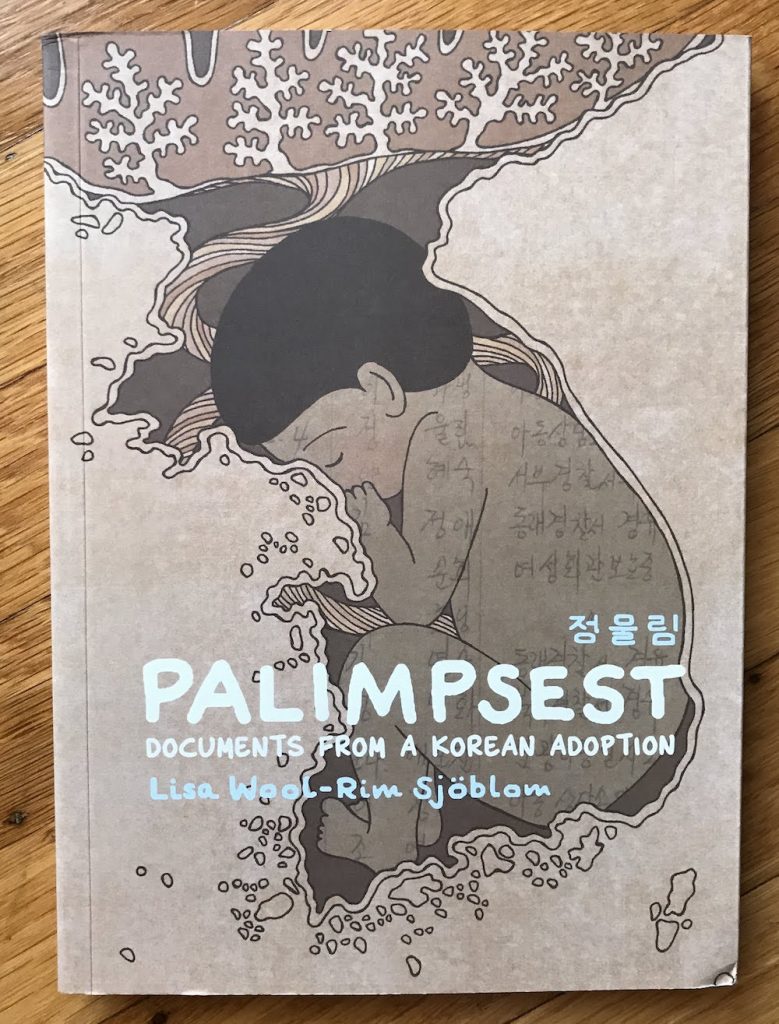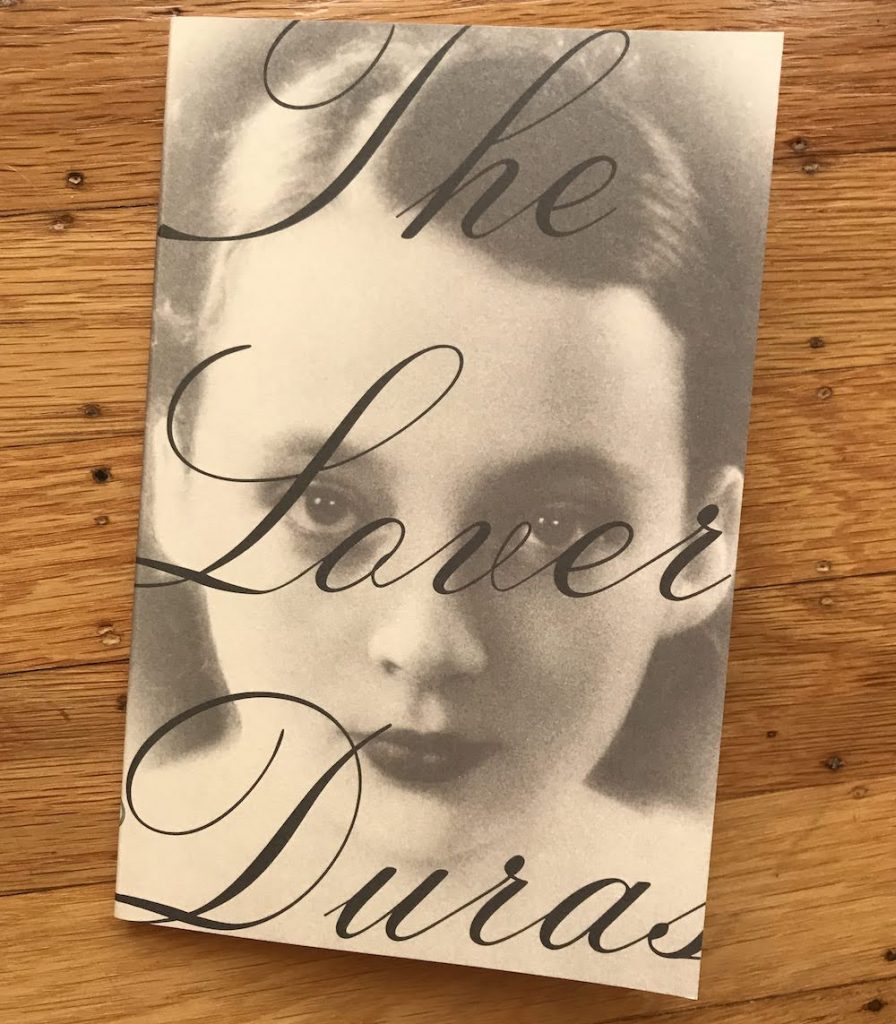
Palimpsest: Documents from A Korean Adoption
by Lisa Wool-Rim Sjöblom
published by Drawn & Quarterly, Montreal, Canada
2019
This is a beautiful, non-fiction graphic novel about an adopted Swede of Korean origin, her life experience as an adopted person, and the corruption and bureaucracy of the international adoption industry.
Drawn & Quarterly is a great publisher, and the excerpt of this book at their website drew me in. The story is charmingly illustrated, but the subject matter is serious. Who gets to decide what the narrative of adoption is? For international adoptions, why is the story always that heroic white people saved a child from their terrible relatives and/or homeland? Why are so many children who are not actually orphaned adopted out of their families and culture?
The narrator looks into her own family history, and it takes years of effort and abundant support from her friends and family to dig through layers of lies – constant lies, omissions, and half-truths – to learn the circumstances of her birth. She illustrates and narrates her experience wonderfully, and makes an excellent advocate for adoptees.
I had to double-check my understanding of the word palimpsest: it is a document that has been erased and written over, and so may have different layers of meaning. It’s a strange Greco-Latin word, and a fitting one for the identity layers adopted people experience.
~~~
I’ve had friends who have been adopted, and a colleague who made an international adoption. My adopted friends shared their perspectives about their adoptions with me, how they processed revelations about their origins, and their desires to eventually meet their genetic relatives. (They did!) Their views were the opposite of the adoptive parent colleague, who baselessly villainized his child’s anonymous birth mother to a degree that shocked me, but which fit into his desired heroic narrative. So much of what Ms. Sjöblom wrote made sense to me because of what my friends had shared, but her story should appeal to anyone who wants to know who they are and feel that they “belong.”


